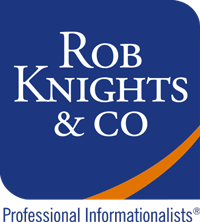Practice Assets that are Typically Transferred upon Sale
A couple of recent practice sales reminded me that not everyone is necessarily aware of all the assets or items that are typically incorporated within, and transferred as part of, a practice sale. Hence, I thought it may be helpful to outline some of the common inclusions and the prep work that is required in the lead up to settlement.
Often the sale of a professional practice will include:
- Goodwill.
- Clients, client records, files, working papers, books and records pertaining to the purchased clients. These days many firms will have most of these in the cloud and/or be paperless, however for older practitioners, they may not have progressed to this as yet or in full. Additionally, there may also be records such as trust deeds and the like that remain in the physical form. Thus, a purchaser will generally only want what they have to retain, with the vendor often responsible for the destruction or return of the rest.
- Software – licences to be transferred where needed to continue servicing clients and/or providing services. Where such costs are annual, sums will be apportioned accordingly.
- Company / Business / Trading Name – I have yet to see where a purchaser has acquired the vendor’s legal entity such as the company, as with it also goes any potential liabilities, however the purchaser will definitely want the ‘right’ to the name that the firm trades under, even if they’re not going to continue to operate under that name. This contributes to the firm’s goodwill, thus must be made available where desired.
- Phone / Fax numbers – again, this is standard practice, and in some cases the purchaser may also want the vendor’s mobile number, especially where clients make regular contact through that means.
- Website & e-mail addresses – again, this is a no brainer, a must for the purchaser. If the vendor is unwilling to pass these over, the question would always be why? However, when it comes to e-mail addresses, this is something that may require some advance planning. It’s not uncommon for sole practitioners or smaller firms to utilise one common e-mail address for both business and personal correspondence, and of course it is natural for the vendor not to want anyone else receiving or being able to review their private historic correspondence. Whilst I am no tech genius, I believe there are means of addressing such concerns. However, another approach would be to begin separating personal communication away from the same e-mail address utilised for work purposes in preparation for the practice sale.
- Any other intellectual property.
- Plant and equipment, or part thereof, where so desired, is generally at an additional cost unless documented otherwise. If some of this is under lease or finance, necessary arrangements may need to be made to enable the transfer upon settlement.
- WIP – on very rare occasions, the purchaser may wish to purchase the WIP as at transaction date, however there will generally be an effort to establish what is actually recoverable or not. Likewise, taxable sums may also be considered. Thus, if your practice typically carries longstanding WIP, it’s a very worthwhile time to start culling whatever is not recoverable.
So, as this list would tend to suggest, there is a bit of homework that is required in the lead up to settlement, with these, and potentially other, transfers required to be made. However importantly, just as the communication to clients DOES NOT occur until settlement, neither does the transfer of these other assets. But, it’s important to have the paperwork prepared, ready to go, and then spend the first couple of days focused on transferring everything and anything across to the purchaser in line with what they have purchased. As a suggestion, if you are considering the sale of your practice, perhaps put together a bit of a list of the various things that are likely to need to be transferred to the purchaser as a starting point. It will be much easier than trying to do all the paperwork the day of settlement.
